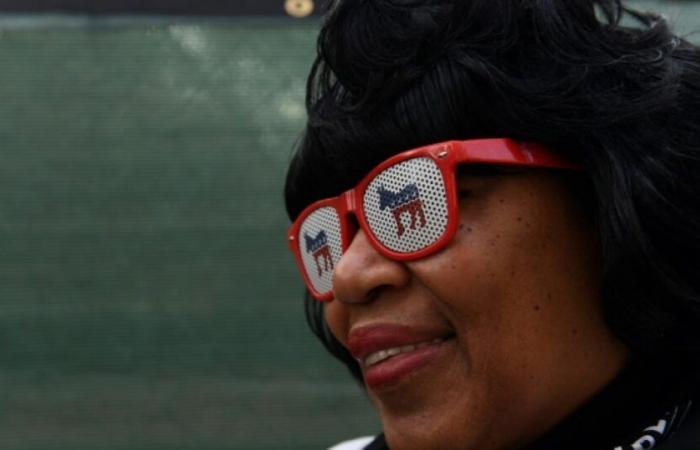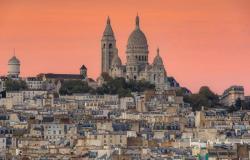“If she doesn't win, we're screwed”: like Robin Matthews, many Democratic voters lining up for Kamala Harris's last meeting, Monday in Philadelphia, fear the return of an “uncontrolled” Donald Trump to the White House and hope for an end to divisions.
On the main avenue leading to the “Philadelphia Museum of Art” in front of which the vice-president was to speak late in the evening, a few hours before the opening of the polling stations on Tuesday, the crowd is impressive and the lines of expectations form long serpentines.
“I am cautiously optimistic, but I am worried,” explains Robin Matthews, a 50-year-old association leader from the suburbs, in this Pennsylvania so crucial for the final result of the presidential election.
“Because if she doesn't win, we're screwed. Totally. He (Donald Trump) will ruin everything. He is out of control, there is no longer any balance of power,” she assures. At his side, his 16-year-old son, Asher, intervenes to underline what, in his eyes, is the issue of this election: “the preservation of our democratic system”.
– “Difficult to talk (to oneself)” –
Under the autumn foliage, percussionists set the mood before the meeting where stars like Lady Gaga and Oprah Winfrey are expected, at the foot of the museum steps climbed by Sylvester Stallone in a famous scene from “Rocky”.
But at the end of a very long campaign, marked by extraordinary twists and turns in an America more divided than ever, Yvonne Tinsley, a 35-year-old accounting manager, “wants it to end”.
She's tired of political ads on TV and she's tired of having to explain to her friends that the news isn't in videos on Facebook or Instagram.
Cautious, she does not expect any political miracle with Kamala Harris. “I know she’s not going to change everything,” she says. But too much is at stake in his eyes if the former Republican president returns to the White House.
“I'm a black woman in America, so unfortunately all policies affect me differently, because I will be the worst off,” she explains. “So, coming back to a world where we don’t even listen to white women, it’s certain that I will be heard even less.”
“We had Trump for four years, nothing worked,” says Robert Rudolf, a 58-year-old computer programmer. “There was a lot of racism, misogyny. It's become a little normalized, so I hope we stay away from all that.”
“Harris-Walz” cap on his head and lumberjack shirt on his back, he explains that he comes from a rural and “red” corner of the state.
“We're becoming more and more divided. It's really, really difficult to talk to people on the other side,” he says.
A tense context which makes Roxana Rohe, 42, a professor who came with her two daughters, fear a long post-election sequence.
“Trump is already saying that the election was stolen from him, before it even took place,” she sighs.






